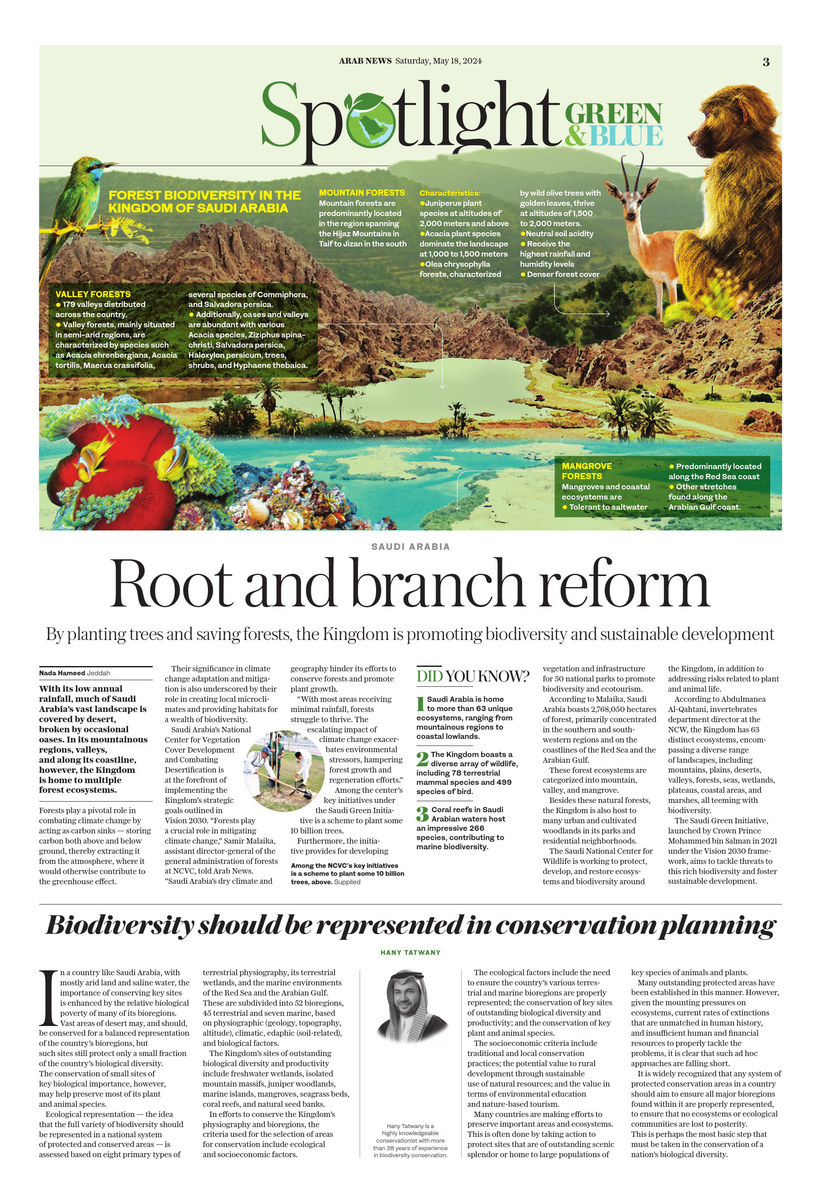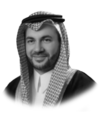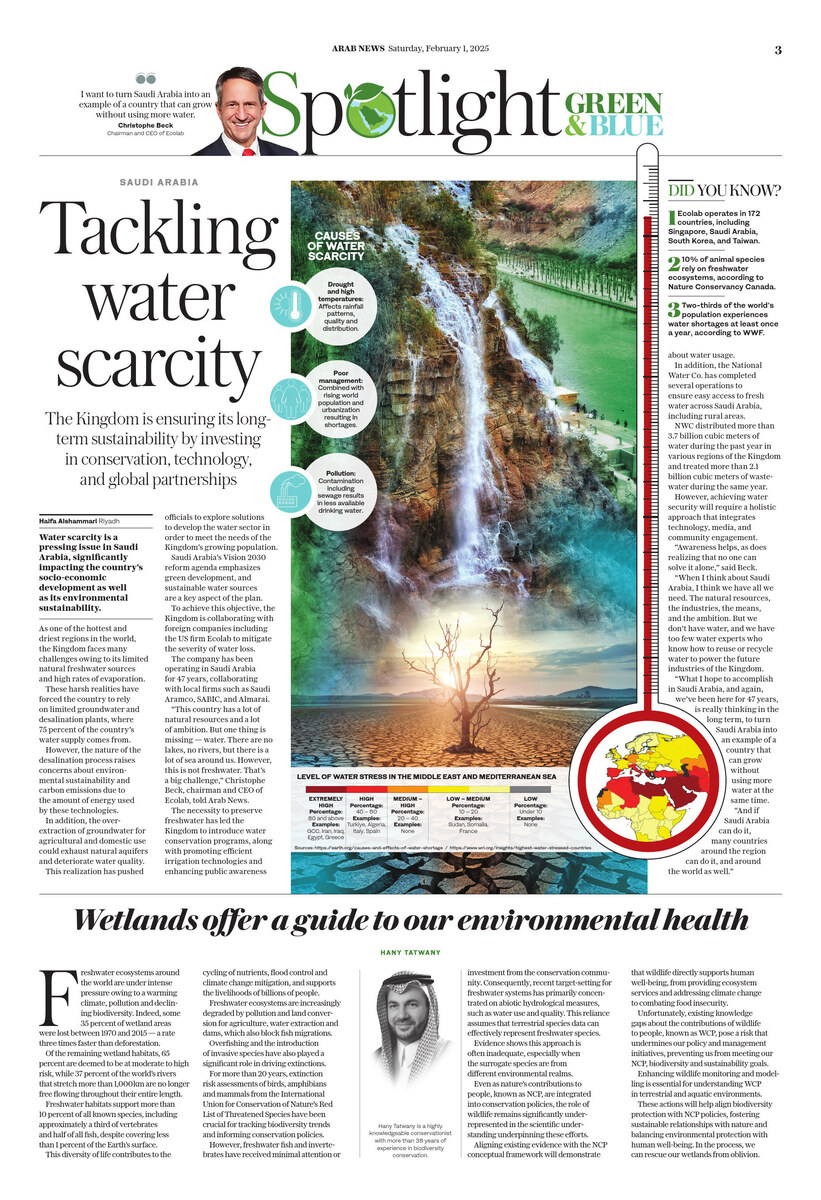Biodiversity should be represented in conservation planning

https://arab.news/yh4js
Saudi Arabia covers an area of more than 2 million square kilometers, ranking it 13th in the world in terms of land size, and the second-largest Arab country after Algeria. The Kingdom occupies four-fifths of the total area of the Arabian Peninsula, and is considered the largest country in the world without any permanent rivers.
In a country like Saudi Arabia, with mostly arid land and saline water, the importance of conserving key sites is enhanced by the relative biological poverty of many of its bioregions. Vast areas of desert may, and should, be conserved for a balanced representation of the country’s bioregions, but such sites still protect only a small fraction of the country’s biological diversity. The conservation of small sites of key biological importance, however, may help preserve most of its plant and animal species.
In the Kingdom, ecological representation — the idea that the full variety of biodiversity should be represented in a national system of protected and conserved areas — in the country is assessed based on eight primary types of terrestrial physiography, its terrestrial wetlands, and the marine environments of the Red Sea and the Arabian Gulf. These are subdivided into 52 bioregions, 45 terrestrial and seven marine, based on physiographic (geology, topography, altitude), climatic, edaphic (soil-related), and biological factors.
The Kingdom’s sites of outstanding biological diversity and productivity include freshwater wetlands, isolated mountain massifs, juniper woodlands, marine islands, mangroves, seagrass beds, coral reefs, and natural seed banks.
In efforts to conserve the Kingdom’s physiography and bioregions, the criteria used for the selection and prioritization of areas for protection and conservation include consideration of ecological and socioeconomic factors.
The conservation of small sites of key biological importance may help preserve most of Saudi Arabia’s plant and animal species.
Hany Tatwany
The ecological factors include the need to ensure the country’s various terrestrial and marine bioregions are properly represented; the conservation of key sites of outstanding biological diversity and productivity; and the conservation of key plant and animal species.
The socioeconomic criteria include traditional and local conservation practices; the potential value to rural development through sustainable use of natural resources; and the value in terms of environmental education and nature-based tourism.
Many countries are making efforts to preserve important areas and ecosystems. This is often done by taking action to protect sites that are of outstanding scenic splendor or home to large populations of key species of animals and plants. Protected areas are therefore established to conserve threatened or rare species and improve the representation of bioregions.
Many outstanding protected areas have been established in this manner. However, given the rapidly mounting threats and pressures on ecosystems, current rates of extinctions that are unmatched in human history, and insufficient human and financial resources to properly tackle the problems, it is clear that such ad hoc approaches are falling short.
It is widely recognized that any system of protected conservation areas in a country should aim to ensure all major bioregions found within it are properly represented, to ensure that no ecosystems or ecological communities are lost to posterity. This is perhaps the most basic step that must be taken in the conservation of a nation’s biological diversity.
• Hany Tatwany is a highly knowledgeable conservationist with more than 38 years of experience in biodiversity conservation.




























